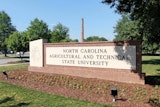Be nice!
We’ve all heard about six degrees of separation – the idea that everyone on the planet are six or fewer connections away from one another (i.e. “friend of a friend”). In the science world, it’s more like three degrees of separation. The science community is small, so to have a successful and fulfilling career in science it is important to always be kind and collaborative. Scientists talk with each other, especially when it comes to potentially hiring someone for their research group or company. Hiring committees are increasingly more cautious when hiring and perform their due diligence by having online background checks and/or speaking directly with references over the phone or by Skype for job candidates. The proverb, “People may not remember exactly what you did or what you said, but they will always remember how you made them feel” is very applicable in science. First impressions matter and you want to make sure you leave a positive impression with everyone you meet during an interview. Having polite email and phone correspondence with your interviewers before, during, and after an interview is an also important yet commonly overlooked aspect of securing a job in STEM. Companies want to hire talented people that will strengthen the atmosphere and culture of their workplace and have the potential to grow into a contributing member of their team. So please – be polite, be punctual, and above all, be nice.
 Dr. Donald E. Spratt
Dr. Donald E. SprattNetwork, Network, Network!
Making meaningful connections is vital to becoming successful in science. Serendipity is an amazing phenomenon where chance encounters can create lucky opportunities and open doors to new careers for you that you may have never considered before. Expanding your network can also help you identify potential mentors that can give you invaluable guidance on how to navigate your next steps in your career. For some young scientists that are introverts, this can be a daunting or downright terrifying experience. Don’t be shy – many senior scientists are ready, willing and eager to support the next generation of scientists navigate the job market. A great venue to grow your network is at conferences – each person that comes to your talk or by your poster to learn about your research could potentially become a new network connection. There are also career workshops held around the country that could be a good platform for you to learn more about STEM career options. Many universities and colleges have started to build their own LinkedIn-like platforms to connect students with potential internships or jobs, with many alumni joining these social networks to actively help and/or recruit from their alma mater. Informational interviews are another great way to build your network where you can gather firsthand information from an expert about the realities of working within a particular field and are an excellent way to learn more about a potential career or company environment before you apply for a job. Get out there and make a new connection or friend in the science community!
Be tenacious and strive for excellence!
Many science students work long hours in the lab thinking that if they work hard enough they will get that elusive result to complete their thesis or to publish a paper in an illustrious journal. For some this approach will lead to success; for others, the upsetting reality is that their project might not work out and they will struggle with feelings of disappointment. This can sometimes make young scientists question why they are in the field at all. Surround yourself with smart people in a positive work environment that will support your career growth and give you the mentorship you need at the right time. Tenacity, patience, and stick-to-itiveness are the hallmarks of a successful scientist. “Dust yourself off and get back in the ring” is an excellent phrase to keep motivated and approach your career in STEM – never give up!
Don’t be afraid of take on a new challenge!
Techniques learned in classroom or the lab are often translatable to other science fields. Just because you worked in a specific area of research doesn’t mean you have to work in that area for your entire career. Many successful scientists adapt and take on challenging projects that peak their interest. I would argue that the true measure of the mettle of a scientist is not specific techniques or lab skills they have mastered, but the actual approach they take to answer the scientific question they want to answer that matters. Most interviewers are not particularly interested in hearing a long drawn out discussion on your research thesis you completed last month or a few years ago – they want the short, snappy two-minute synopsis. They are more interested in hearing about how you approached a challenging problem and if you were able to overcome an obstacle leading to success.
It is also important for all scientists to become effective communicators to share our knowledge and love of the natural world with the general public. Scientists have a role to play in helping to improve scientific literacy for the masses – whether it be at work, in your community, or at a party – as well as inspiring the next generation of students to pursue careers in STEM. While this can be challenging, it is vital that young scientists joining the workforce step up to help shape the narrative for how science is perceived in this day of misinformation and sensational headlines – let’s all work together to cut through the noise.
Always be passionate about science and never stop learning!
Many strong resumes these days list the techniques that people have mastered, which is a good thing. But what separates the good candidates from the amazing candidates during their interviews is their undeniable and overflowing love for science. All employers are looking for people that are excited and passionate about research and want to build a team of smart and welcoming thinkers. I teach many students that work in my research lab or have taken my classes that “science is not a race, it’s a journey!” It is a life-long and noble pursuit. Always be curious and try to carve out time in your schedule to learn about new developments and advances in your field. Go to a symposium, listen to podcasts, read books and magazines – expand your mind and scientific interests. Learning doesn’t stop when you close your last text book or write your final exam – science is always evolving and it is important that you stay engaged and grow with the science community.
Dr. Donald E. Spratt is an assistant professor of chemistry and biochemistry at Clark University.















